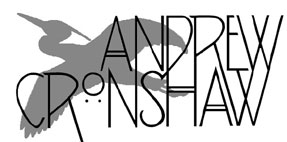
- Andrew Cronshaw website -
- Andrew Cronshaw MySpace -
- Cloud Valley Music website -
- Andrew Cronshaw website -
- Andrew Cronshaw MySpace -
- Back to Reviews Introduction page -
Written in Folk Roots issue 167, 1997
MARIA KALANIEMI & ALDARGAZ
Iho
Hannibal HNCD 1396 (1996)
PROGMATICS
Vaarillinen Lehmänkello
Olarin OMCD 74 (1996)
MARJA MATTLAR
Lumi
Isis/Buda 82932-2 (1996)
Accordion isn’t an instrument which has been much associated in the minds of
many with subtlety, but, partly drawing on the bandoneon work of the likes of
Astor Piazzolla and also often freeing up the left hand by de-coupling the
chords to play free-bass, there is a growing but still small body of players
whose work touches even accordion-haters.
Maria Kalaniemi has a cherishing way with a tune;
from even before she lays a finger on a button of her Finnish-made five-row
there’s a sense that she’s about to play something important - an aura of
concentration on the melody to come. When she plays every note is crafted and
shaped, the tune lives and twists.
And these are fine tunes. A lyrical intro, then
it’s into a fast-skipping Kalaniemi original, Lomasävel (“Holiday Tune”)
featuring most of the usual line-up of the band - guitarist Olli Varis, bassist
Tapani Varis and fiddler Arto Järvelä - followed by a typical ingeniously
winding, hesitating tune, Green Score, by the fifth member, pianist,
harmonium-player and arranger of most of the album, Timo Alakotila, which also
brings in mandolinist Petri Hakala.
Tango makes its contribution in the Carlos Gardel
tune, Surun Silmät (“Sad Eyes”). The title track, Iho (“Skin”),
has an old-Finnish style central theme and dances around it with a rolling,
shifting stress. The final track on the original 1995 Finnish release on Olarin,
another Kalaniemi tune, Linjärv, introduces a string quartet and Jukka
Tiirikainen’s trumpets; that’s followed on this 1997 Hannibal rest-of-world
release by the original first track, the stately Swedish-Finnish bridal march
Napoleon.
It’s a varied album, never becoming “and here’s
another one”. Throughout there are ledges and surges in the rhythm, articulate
moves through the possible harmonisations, openings-out into a flowing lyricism,
rich textures, quivering grace-noting and always Kalaniemi’s distinctive quiet
intensity.
The drum sample that opens it, and the jokey
attitude of the sleeve - a cartoon cow private eye, a photo of the black-clad
band with serious haircuts, shades and guns standing over a bleeding melodeon
(no, I mean actually, or rather graphically, bleeding) - suggests that
Progmatics’ debut album is an iconoclastic rip through the Finnish tradition.
There’s certainly witty energy and fine playing here, but what Vaarallinen
Lehmänkello (“Lethal Cowbell”) shows as it settles in is a tight, zippy band
- Jouko Kyhälä (harmonica, keyboards, vocal - also incidentally a roaring player
of Hammond organ, which pops in briefly but effectively here in Polska Des
Boots), Janne Lappalainen (tenor sax, fretted strings - he also plays sax on
the Kalaniemi album), Markku Lepistö (accordion and aforementioned boots) and
Perttu Paappanen (fiddle) - in a strong set of Finnish or Finnish-Swedish
traditional and new-composed dance tunes - polskas, hambos, a polkka, a reel,
Lappfjärds bridal march - and a song, Naapuri (Neighbour) which
bursts into a reel between verses in a way slightly reminiscent of pop-period
Stockton’s Wing.
Very different is Marja Mattlar, a songwriter
with a style reminiscent of more southerly European countries than Finland;
indeed she collaborated on some gigs a couple of years back and on her previous
album with Gabriel Yacoub. Lumi (“Snow”) is an all-Finnish project, but
still puts her into the general area occupied by such as Norway’s magnificent
Kari Bremnes, who also draws on a sort of European chanson tradition.
She sings almost entirely of love, emotions and
first-person relationships, using phrases and images that allude but always seem
to turn away just before becoming specific, like someone who doesn’t know how to
begin and waits for the other to say “You mean...?”. Given, though, that the
songs are in Finnish and you’re reading this in English the texts are likely to
be of subordinate importance to the sound, and that’s lush and elegant; it’s a
very well-produced album with chamber-orchestrated arrangements and Mattlar’s
serene voice - or rather almost two voices, a silky low register and a floating
high.
© 1996
Andrew Cronshaw
You're welcome to quote from reviews on this site, but please credit the writer
and fRoots.
Links:
fRoots - The feature and
review-packed UK-based monthly world roots music magazine in which these reviews
were published, and by whose permission they're reproduced here.
Kansanmusiikki-instituutti (Finland's national Folk Music Institute).
It's not practical to give, and keep up to date,
current contact details and sales sources for all the artists and labels in
these reviews, but try Googling for them, and where possible buy direct from the
artists.
Helsinki's Digelius Music
record shop is a great source of Finnish roots and other albums.
CDRoots.com in the USA, run by
Cliff Furnald, is a reliable and independent online retail source, with reviews,
of many of the CDs in these reviews; it's connected to his excellent online magazine
Rootsworld.com
For more reviews click on the regions below
NORDIC
BALTIC
IBERIA (& islands)
CENTRAL & EASTERN EUROPE, & CAUCASUS
OTHER EUROPEAN AMERICAS OTHER, AND WORLD IN GENERAL
- Back to Reviews Introduction page -